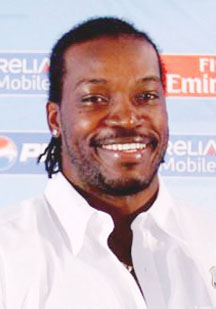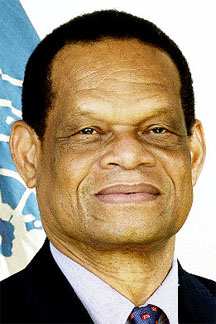By Romain W M Pitt
The issue is: what is more likely to cause long term harm to West Indies cricket? The toleration by the West Indies Cricket Board (WICB) of public pronouncements disrespectful of it by players, or arbitrary decision-making by or on behalf of the Board, resulting in the exclusion of the best cricketers from teams selected to represent the region? I respectfully submit that the answer, using either or both the deductive and inductive method, is arbitrary decision-making.
It is relevant to note that Kumar Sangakarra, the former captain of the Sri Lankan cricket team, and one of its best batsmen during the team’s recent English tour, indicted his country’s cricket board for corruption in a speech at Lords. He continues uninterruptedly to represent his country. Tatenda Taibu, one of Zimbabwe’s best cricketers immediately before the recent tour of that country by the Pakistan national team, made serious allegations about mismanagement against the Zimbabwean cricket board which had for years been criticized by the more successful and powerful cricketing countries.

Taibu continues uninterruptedly to represent his country. England’s best spin bowler, Graeme Swann, just completed a book in which he heaped criticism on Kevin Pietersen’s short-lived captaincy while they both played for their country.
According to a recent press release from the WICB, Chris Gayle, West Indies best cricketer is required to withdraw disparaging comments about the WICB and its coach that he made in a recent radio interview, as a condition for being selected to represent the region. It is beyond dispute that Gayle made the remarks because he believed that he had been unfairly treated by the WICB through its CEO and coach, the latter of whom intimated that he, Gayle, might not be selected in the future to represent the West Indies.
It is useful to note that a former president of the WICB, Pat Rousseau, a lawyer, publicly expressed on more than one occasion the view that Gayle’s treatment was contrary to natural justice principles by virtue of the WICB’s failure to follow its own disciplinary procedures in dealing with the allegations against Gayle.
The WICB recently renamed its annual fifty-over regional tournament after the illustrious West Indies former captain, Clive Lloyd, also a WICB director. The Board immediately thereafter obtained Lloyd’s pre-approval of its proposed resolution of the dispute by requiring Gayle to withdraw his comments. It is reasonable to conclude that the re-naming of the tournament and Lloyd’s pre-approval are not unconnected. If they are, the Board’s strategy is unethical. If they are not connected, the pre-approval still suggests that the Board may have undue influence over Lloyd, a circumstance that is, to say the least, troubling.

Why is it so important to the WICB that Gayle relent? I submit that more than anything else, it reflects the neurotic need of the psychologically insecure directors, encumbered by authoritarian personalities. I question WICB’s moral right to demand such a unilateral retraction in light of what WICB’s directors and officers have said and done in the past.
While I would accept whatever Gayle’s decision may be, I could not, in good conscience, recommend that he accept WICB’s condition.
Romain W M Pitt is a Retired Superior Court Judge of Ontario, Canada and has a passion for cricket.
Reprinted from Trinidad and Tobago Review – November 2011





